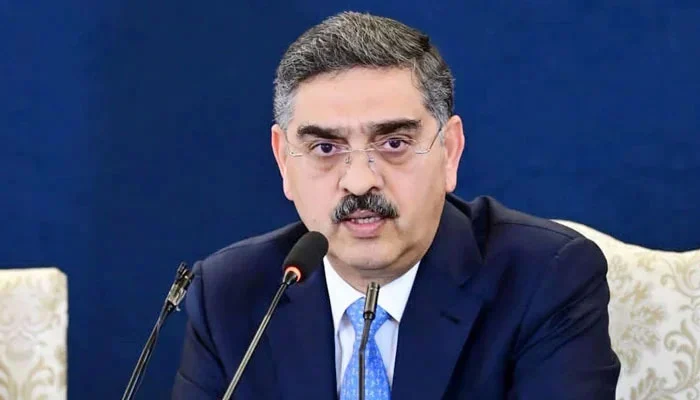Interim Prime Minister Anwaarul Haq Kakar has again defended the government’s decision to repatriate undocumented individuals, saying that Pakistan cannot continue to compromise its national security by accommodating such people.
In November, the caretakers had initiated a nationwide campaign to deport illegal foreign nationals, the majority of whom are Afghans. While the decision had prompted criticism from Afghanistan and several other quarters, the government refused to budge, insisting the move was not aimed at any particular ethnic group.
Of the more than four million Afghans living in Pakistan, the government estimates 1.7m are undocumented. So far, thousands of Afghans have returned home from the Torkham and Chaman border crossings.
Earlier this month, Chief of Army Staff (COAS) General Asim Munir had also backed the interim government’s decision to deport illegal foreigners, saying that they were “seriously affecting Pakistan’s security and economy”.
In an op-ed published in The Guardian late on Sunday, Kakar said that over the last three to four decades, “between four and five million migrants (roughly the population of Ireland)” had arrived in Pakistan.
“Many have no right to remain. Despite being a non-signatory to 1951 Convention on Refugees (and its 1967 Protocol), we have generously accommodated the single largest caseload of refugees.
“Hospitality is in Pakistan’s DNA which is why we have, and will continue to fulfil our legal, moral and humanitarian obligations,” he said.
The premier said that Pakistan had worked very hard over a long period of time to accommodate “as many as we can while giving those with no right to remain ample opportunity to leave voluntarily”.
“Unfortunately, despite frequent opportunities to repatriate voluntarily, and multiple government attempts to register those who remain undocumented, a significant number has persistently refused to formalise their status, choosing instead to stay in the shadows,” he said.
He further said that while Pakistan had benefitted from “hard-working and law-abiding migrants”, the socio-economic and security cost of the influx had been “staggering.”
“Many work on the black market, paying no tax, depressing wages for legitimate workers. They are also susceptible to exploitation by the criminal underworld, with all its disturbing links to terrorist organisations operating in the region,” he said.
He further said that since August 2021, at least 16 Afghan nationals had carried out suicide attacks inside Pakistan, while 65 terrorists killed in encounters with security forces, mainly in the bordering region, were identified as Afghans.










